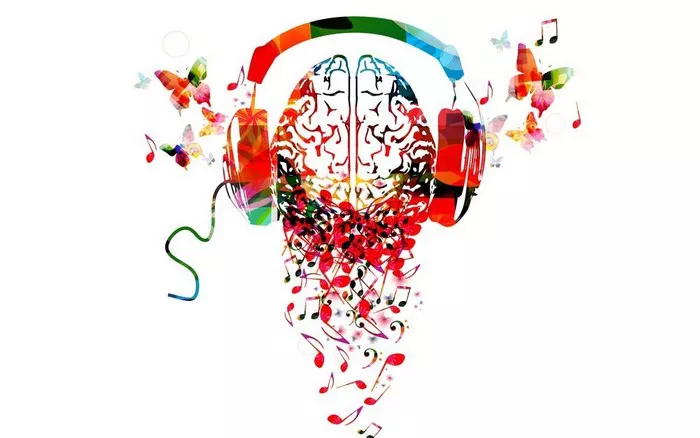Music has been an integral part of human culture and society for thousands of years. It transcends boundaries, speaks to our emotions, and enriches our lives in countless ways. But what exactly makes music so important? From its ability to evoke emotions and memories to its role in cultural expression and social connection, music is a powerful force that touches every aspect of our lives. In this article, we will explore the multifaceted importance of music, delving into its emotional, psychological, cultural, and social significance.
What Makes Music So Important?
The Emotional Power of Music
One of the most profound impacts of music is its ability to evoke emotions. Whether it’s the joy of a lively dance tune, the melancholy of a somber ballad, or the excitement of a powerful anthem, music has a unique capacity to touch our hearts and souls.
Music as an Emotional Outlet
For many people, music serves as an emotional outlet. It allows individuals to express feelings that they might not be able to articulate in words. Listening to or creating music can provide a release for emotions such as happiness, sadness, anger, or love. This emotional expression can be therapeutic, helping people to cope with difficult situations and to find solace in times of need.
see also: what makes music important
The Science Behind Music and Emotions
Research has shown that music can have a profound effect on our brains. Listening to music activates multiple areas of the brain, including those associated with emotion, memory, and reward. The release of neurotransmitters such as dopamine and serotonin during music listening can enhance mood and promote feelings of pleasure and well-being.
The Psychological Benefits of Music
In addition to its emotional impact, music also offers numerous psychological benefits. It can improve cognitive function, enhance memory, and even aid in the treatment of mental health conditions.
Music and Cognitive Function
Studies have shown that music can enhance cognitive performance in various ways. For example, listening to classical music, often referred to as the “Mozart effect,” has been linked to improved spatial-temporal reasoning skills. Additionally, learning to play a musical instrument can enhance brain plasticity and improve executive functions such as problem-solving, planning, and multitasking.
Music Therapy
Music therapy is an evidence-based practice that uses music interventions to achieve therapeutic goals. It has been shown to be effective in treating a wide range of mental health conditions, including depression, anxiety, and PTSD. Music therapy can help individuals to process emotions, reduce stress, and improve overall mental health.
Music as a Cultural Expression
Music is a powerful form of cultural expression. It reflects the values, beliefs, and experiences of different societies and communities. Through music, we can gain a deeper understanding of diverse cultures and traditions.
Music as a Reflection of Society
Throughout history, music has been used to document and comment on social and political events. From protest songs during the civil rights movement to anthems of solidarity in times of crisis, music has the power to unite people and to inspire social change.
The Role of Music in Rituals and Traditions
Music plays a crucial role in many cultural rituals and traditions. It is often used in ceremonies such as weddings, funerals, and religious services. These musical traditions help to strengthen community bonds and to preserve cultural heritage.
The Social Connection Through Music
Music has a unique ability to bring people together. It fosters social connections and can create a sense of belonging and community.
Music as a Social Activity
Many social activities revolve around music, from concerts and festivals to dances and parties. These events provide opportunities for people to come together, to celebrate, and to share experiences. The communal experience of enjoying music can create lasting memories and forge strong social bonds.
Music and Identity
For many people, music is an important part of their identity. It can reflect personal tastes, values, and experiences. Sharing musical preferences with others can foster a sense of connection and belonging, helping to build relationships and communities.
Music in Education and Development
Music plays a vital role in education and development. It can enhance learning, support social and emotional development, and promote creativity.
Music Education
Music education has been shown to have numerous benefits for children and adolescents. Learning to play an instrument or to sing can improve academic performance, enhance motor skills, and boost self-esteem. Music education also promotes discipline, perseverance, and teamwork, skills that are valuable in all areas of life.
Music and Early Childhood Development
Exposure to music in early childhood can support cognitive, social, and emotional development.
Singing and playing musical games with young children can enhance language development, improve coordination, and foster social interaction.
The Healing Power of Music
Music has long been recognized for its healing properties. It can promote physical and emotional healing, providing comfort and relief in times of illness or distress.
Music and Physical Health
Research has shown that music can have positive effects on physical health. For example, listening to music can reduce pain and anxiety in patients undergoing medical procedures. It can also improve cardiovascular health by lowering blood pressure and heart rate.
Music and Emotional Healing
Music can provide comfort and solace in times of emotional distress. It can help individuals to process grief, to cope with loss, and to find hope and strength in difficult times. The emotional connection to music can be a powerful source of healing and resilience.
Music and Creativity
Music is a powerful form of creative expression. It allows individuals to explore their imagination, to express their unique perspectives, and to connect with others on a deep emotional level.
The Creative Process
The process of creating music can be deeply fulfilling and rewarding. Whether composing a new piece, improvising a solo, or arranging a song, the act of making music engages the mind and the heart. It encourages experimentation, innovation, and self-expression.
Music and Artistic Collaboration
Music often involves collaboration with others, from bandmates and ensemble members to producers and engineers. This collaborative process can foster creativity, build relationships, and create a sense of shared purpose and accomplishment.
Conclusion
Music is a universal language that touches every aspect of our lives. It has the power to evoke emotions, to enhance cognitive function, to reflect cultural values, to foster social connections, to support education and development, to promote healing, and to inspire creativity. Whether we are listening to a favorite song, performing in a concert, or creating a new composition, music enriches our lives in countless ways. Its importance cannot be overstated, and its impact is felt by people of all ages, cultures, and backgrounds. In a world that can often feel divided, music has the unique ability to unite us, to bring us together, and to remind us of our shared humanity.
Related topics:

























